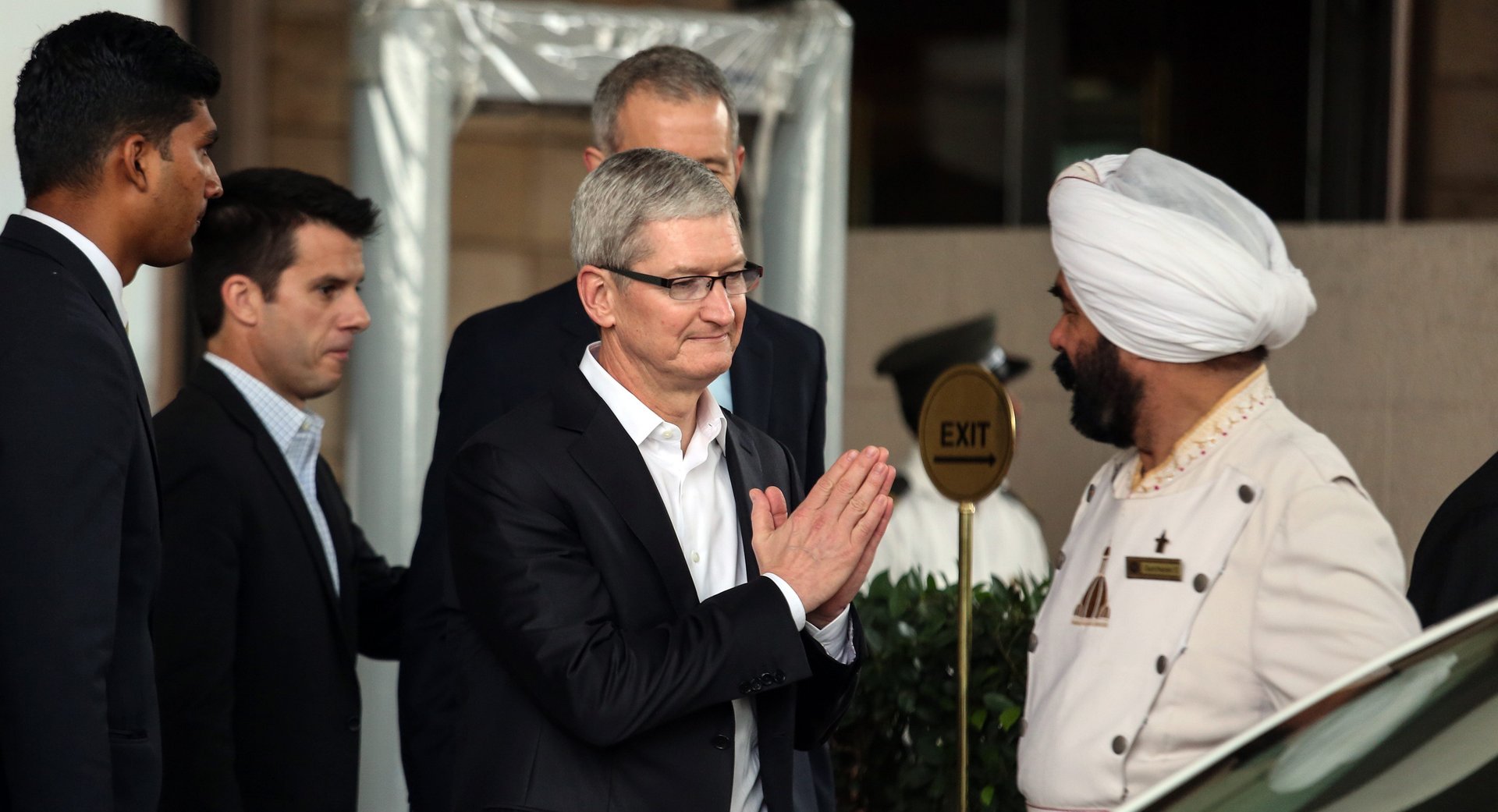So when is that elusive Apple store coming to India?
India’s wait for its first Apple-owned store is not going to end soon.


India’s wait for its first Apple-owned store is not going to end soon.
In June, the Narendra Modi government had paved the way for Apple to open direct stores in the country—almost a decade after iPhones first started selling here. And while Apple’s Indian fans rejoiced at the decision, it now appears that they may have celebrated too soon.
Since the announcement of the new norms, California-based Apple has not approached the Indian government for setting up direct stores in the world’s fastest-growing smartphone market, Ramesh Abhishek, secretary at the department of industrial policy and promotion, told The Financial Express newspaper on Dec. 07. “Now, the company has to decide what it wants to do,” he said.
An email query sent to Apple did not get a reply.
Apple was unable to open stores in India for years because it was mandatory for retailers to locally source at least 30% of the goods sold in such stores. However, on June 20, the Indian government announced a three-year exemption for foreign firms, and said that companies that provide “cutting edge” technology will enjoy an additional five years of a “relaxed sourcing regime.”
The development came just weeks after Apple started showing an unprecedented interest in India.
In April, Apple’s CEO Tim Cook compared the country—which currently accounts for just about 1% of global iPhone sales—with the company’s then second-largest market, China. A month later, Cook made his maiden visit to India during which he met with prime minister Modi and telecom firms.
“At some stage, we over-read into Cook’s visit to India,” said Sanchit Vir Gogia, chief analyst at Delhi-based Greyhound Research. “I think his visit to India was a validation of his interest in the country in the long-term. In the short-term, it was just to build partnerships with companies like Reliance.”
Apple appears to be in a wait-and-watch mode, according to Vishal Tripathi, research director at Gartner.
“What do you think they are waiting for? India has made its policy clear. I think they are still weighing their pros and cons,” Tripathi said. ”Apple is committed to India, but such commitments are usually a long-term thing. Probably they are waiting for some policies that make more financial sense, like getting permission to sell refurbished devices.”
Indeed, the company’s officials did meet Abhishek on Dec. 07 to seek more information on the new government policy, according to a source-based report by the Press Trust of India.
With Apple witnessing a slump in China, many said India may be the next bright spot for the company. But Apple devices may be too expensive for a price-sensitive market. Almost 70% of the smartphones sold in India are in the under $150 (Rs10,000) category. On the other hand, iPhones—which can cost as much as Rs80,000— are among the highest-priced in India.